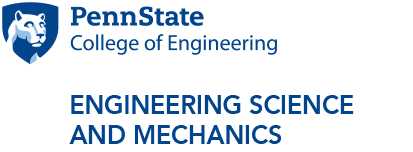Finite Deformation Mesoscale Field Dislocation Mechanics
Abstract: We will describe a model of dislocation mechanics based (crystal) plasticity of unrestricted geometric and material nonlinearity that, when exercised on a sufficiently fine scale, can rigorously predict fields of arbitrary dislocation distributions in finite bodies of arbitrary anisotropy, and when exercised at larger scales of resolution adequate for meso/macro scale structural response, suitably adapting established macroscale phenomenology related to kinetics of plastic flow, makes predictions up to finite strains of size and rate-dependent mechanical behavior, texture, and mesoscale dislocation microstructure evolution in polycrystalline aggregates and single crystals. The phenomenology used to go to the mesoscale can be systematically improved as the need arises, as can the geometric fields involved along with their governing equations.
The framework will be demonstrated by results with a focus on effects not predictable within linear dislocation statics or dynamics, or geometrically linear or nonlinear phenomenological plasticity theories. In particular, we shall recover the experimentally observed scaling of stress strain behavior in constrained simple shear inferred from micropillar experiments that all strain gradient plasticity models overestimate and fail to predict. The second fundamental result will be the demonstration of the inadequacy of mathematically rigorous results based on \Gamma-convergence with the typically employed energy scalings in predicting the correct macroscopic limiting energy density for dense dislocation walls within a finite deformation setting, and the correct prediction based on the developed model.
Biography: Amit Acharya is a professor in the Mechanics, Materials, and Computing research group. His research interests are in the areas of continuum mechanics, theoretical materials science, and applied mathematics and looks at how structural imperfections, or defects, in crystalline materials interact and evolve. Currently, his work focuses on theoretical and computational defect mechanics in crystalline, liquid crystalline, and metallic glass systems, coarse-graining of nonlinear time-dependent systems, and the interplay of differential geometry and structural mechanics in the design and actuation of thin sheets.
Acharya received his PhD in Theoretical & Applied Mechanics from the University of Illinois at Urbana-Champaign (UIUC) in 1994. Subsequently, he completed a post-doctoral position at the University of Pennsylvania.
From 1995-1998, he took a position as a senior research engineer in the ABAQUS Std Development group at HKS, Inc. in Providence, RI (now Simulia, Dassault Systemes). While there, Acharya was the lead developer of the *Hysteresis nonlinear viscoelastic material model and the S4 fully-integrated finite strain shell element. These are still in use in the ABAQUS general-purpose FE code. Between 1998-2000, Acharya was a research scientist at the DOE-ASCI funded Center for Simulation of Advanced Rockets at UIUC before joining CMU in 2000.
Event Contact: Ashley Cecil



